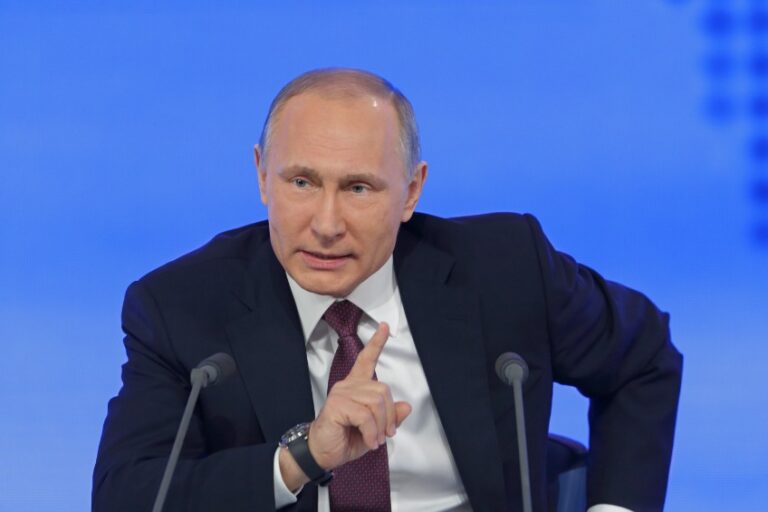People who work in Canada’s energy sector are all too familiar with the problem of American entities funding environmental groups to obstruct oil and gas projects in our country.
Vivian Krause was an early pioneer in raising alarm bells about this issue in Canada. More recently, the Alberta government’s inquiry into the matter found that foreign entities have spent $925 million funding various Canadian environmental groups. On top of that, American groups spent over $352 million on “Canadian-based” environmental initiatives, such as anti-pipeline campaigns, from the U.S.
However, what has received far less attention is the possibility that Vladimir Putin’s regime funded environmental groups in our country to oppose developing our oil and gas resources. Putin appears to have done so in other countries, so why wouldn’t he do the same in Canada?
SecondStreet.org’s new documentary, Defund Putin (available on YouTube), examines this issue more closely. It also looks at the impact of Putin’s invasion and how Canada could play a significant role in offsetting Russian energy sales.
Consider that in 2014, The Guardian quoted Anders Fogh Rasmussen, former Secretary General of NATO, as saying:
“I have met allies who can report that Russia, as part of their sophisticated information and disinformation operations, engaged actively with so-called non-governmental organisations – environmental organisations working against shale gas – to maintain European dependence on imported Russian gas.”
A 2022 column published by The Hill expresses a similar sentiment: “Putin and his cronies helped fund the anti-shale-gas propaganda that led seven European countries to ban fracking.” The column focuses on how foolish it was for the United Kingdom’s new prime minister to once again ban fracking in the country.
Funding environmental groups in other nations is a brilliant strategy if you’re Vladimir Putin. It brings to mind the old proverb “the enemy of my enemy is my friend.” Without a doubt, environmental groups have helped block many nations from developing their own gas resources, leading to Europe’s dependence on Russian energy.
Thanks to Wikileaks, we know that even Hillary Clinton has expressed similar concerns about Russia funding environmental groups in other countries. According to leaked emails from her assistant, Clinton noted behind closed doors:
“We were even up against phony environmental groups, and I’m a big environmentalist, but these were funded by the Russians to stand against any effort, ‘Oh that pipeline, that fracking, that whatever will be a problem for you,’ and a lot of the money supporting that message was coming from Russia.”
But it’s not just Democrats who have made such claims. Republicans have also raised concerns about this problem. In 2017, two of their Congressmen wrote a letter to the Department of Treasury alleging connections between Russia and environmental groups in the U.S.
This past December, House Republicans indicated they plan on investigating the possibility that Russia has been covertly funding environmental groups to criticize fossil fuel production and to limit or stop fracking.
Democrats, Republicans, European officials and various other knowledgeable observers have drawn attention to this problem abroad. Yet, here in Canada, this idea has received very little press.
Research by SecondStreet.org suggests that Canada could displace about half of Russian oil and natural gas exports by the end of the decade if we made it a priority to export our resources abroad. The problem of course is that our resources are stuck in the ground thanks in large part to environmentalists blocking pipelines and resource development.
Did the Russians help them pull that off? Maybe our federal government should take a closer look.
Colin Craig is the President of SecondStreet.org, a Canadian think tank. To learn more about this issue, please visit DefundPutin.ca.
This column was published in EnergyNow on February 8, 2022.
Share on Facebook
Share on Twitter
You can help us continue to research and tell stories about this issue by making a donation or sharing this content with your friends. Be sure to sign up for our updates too!








